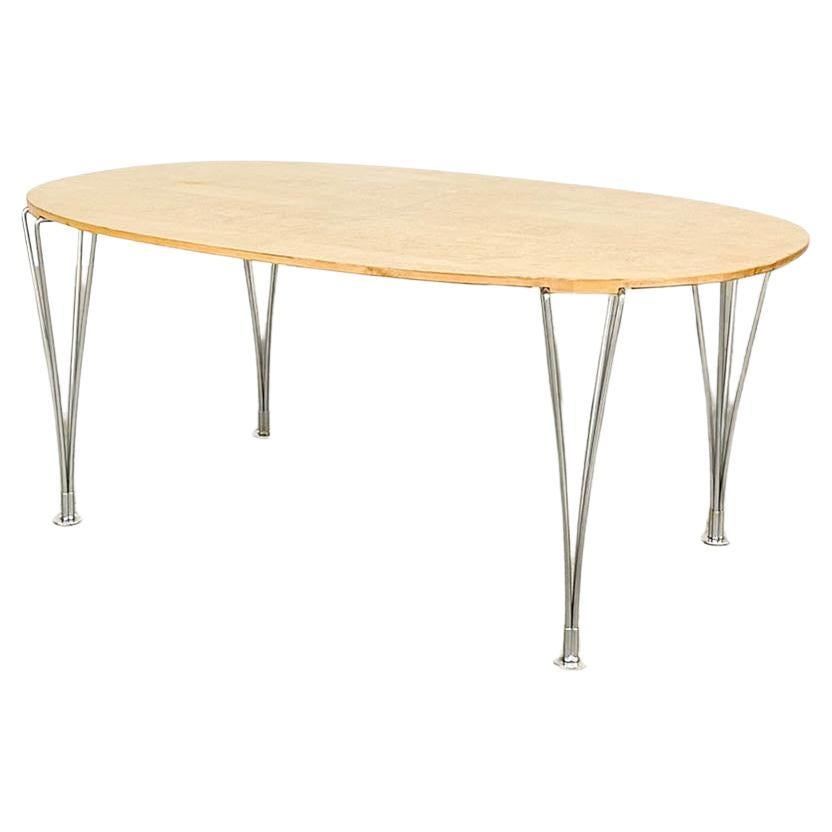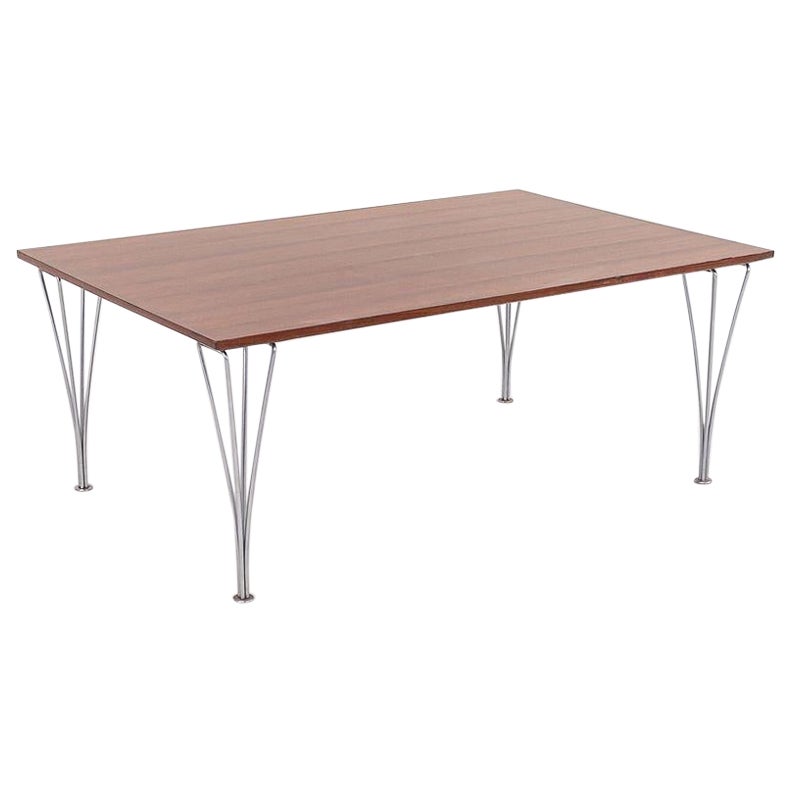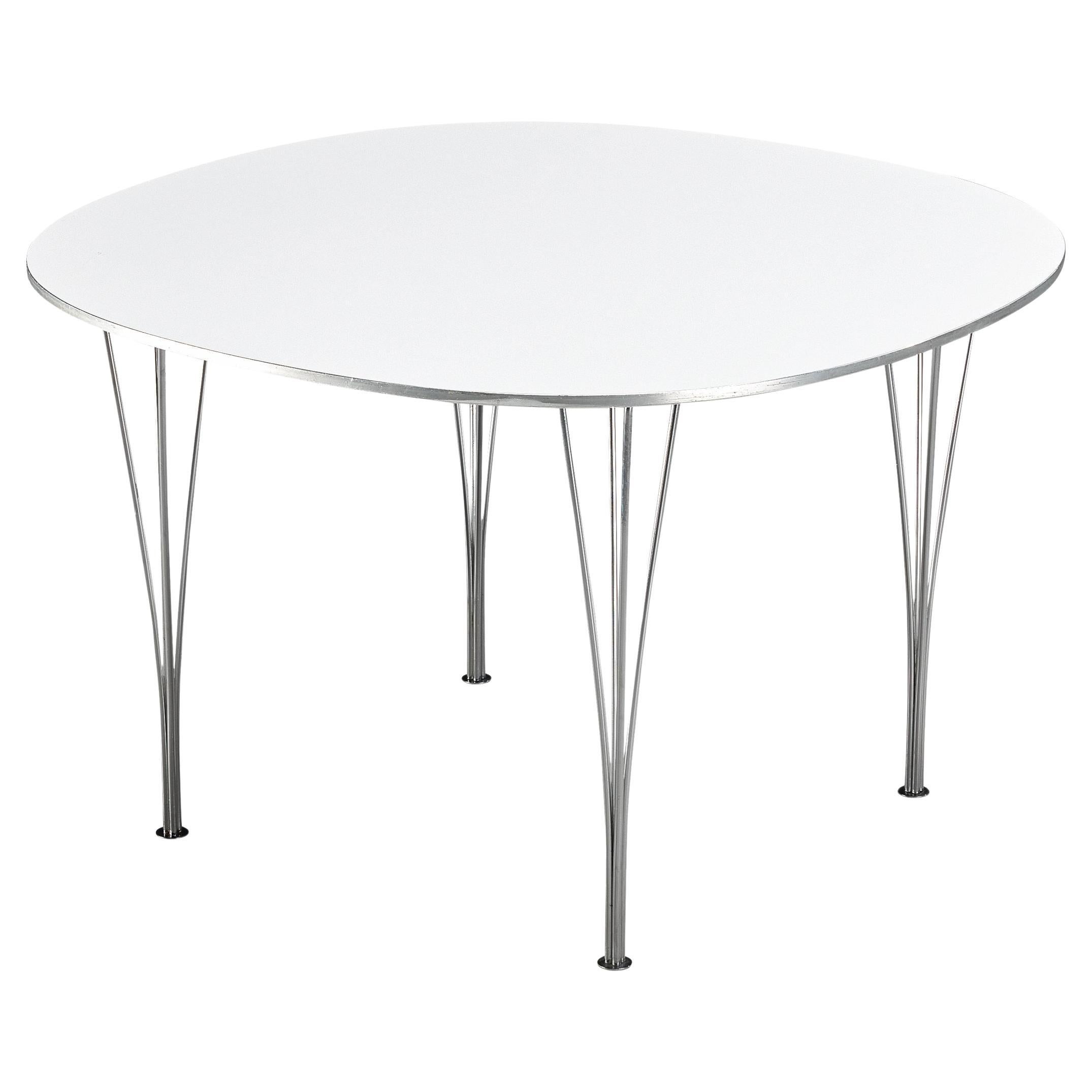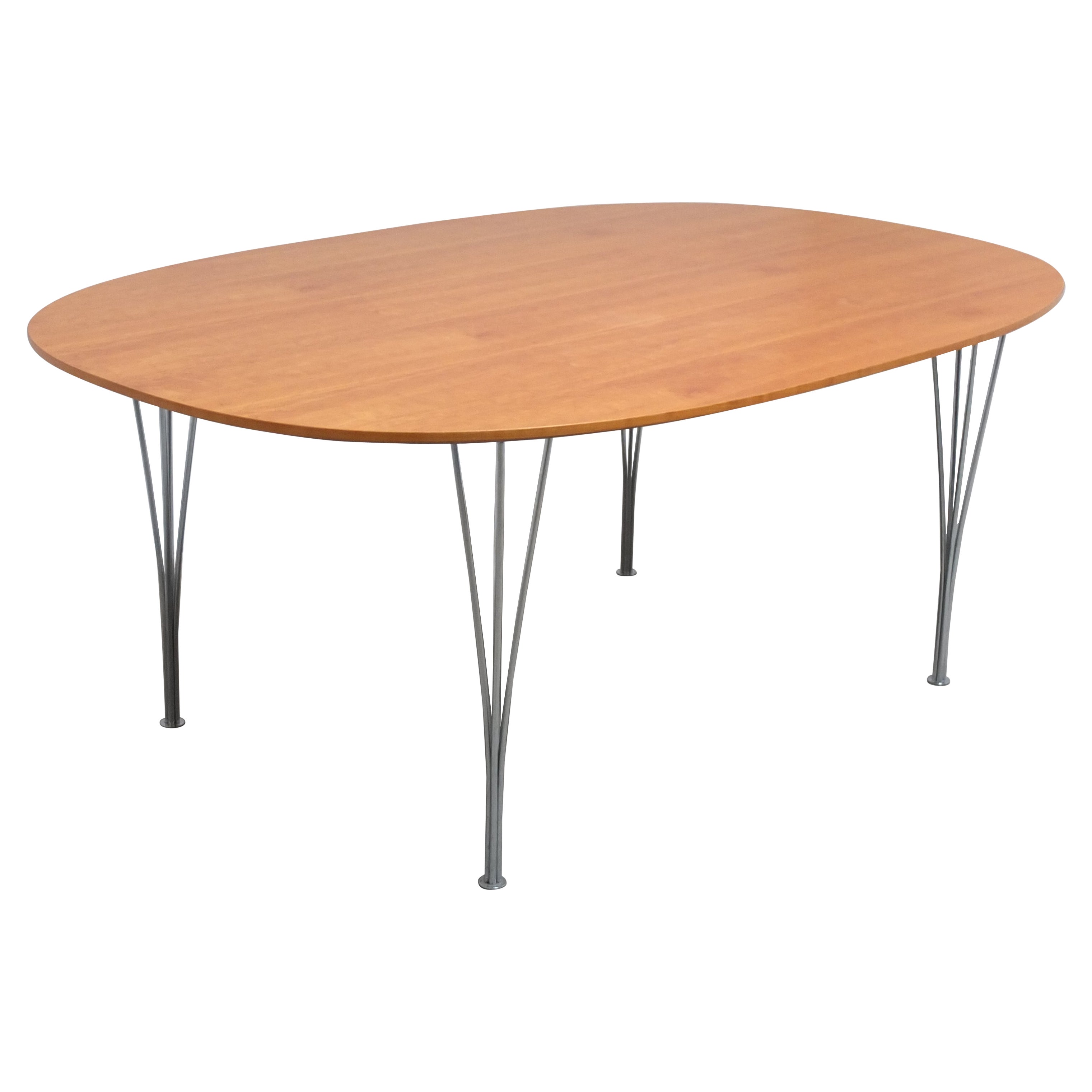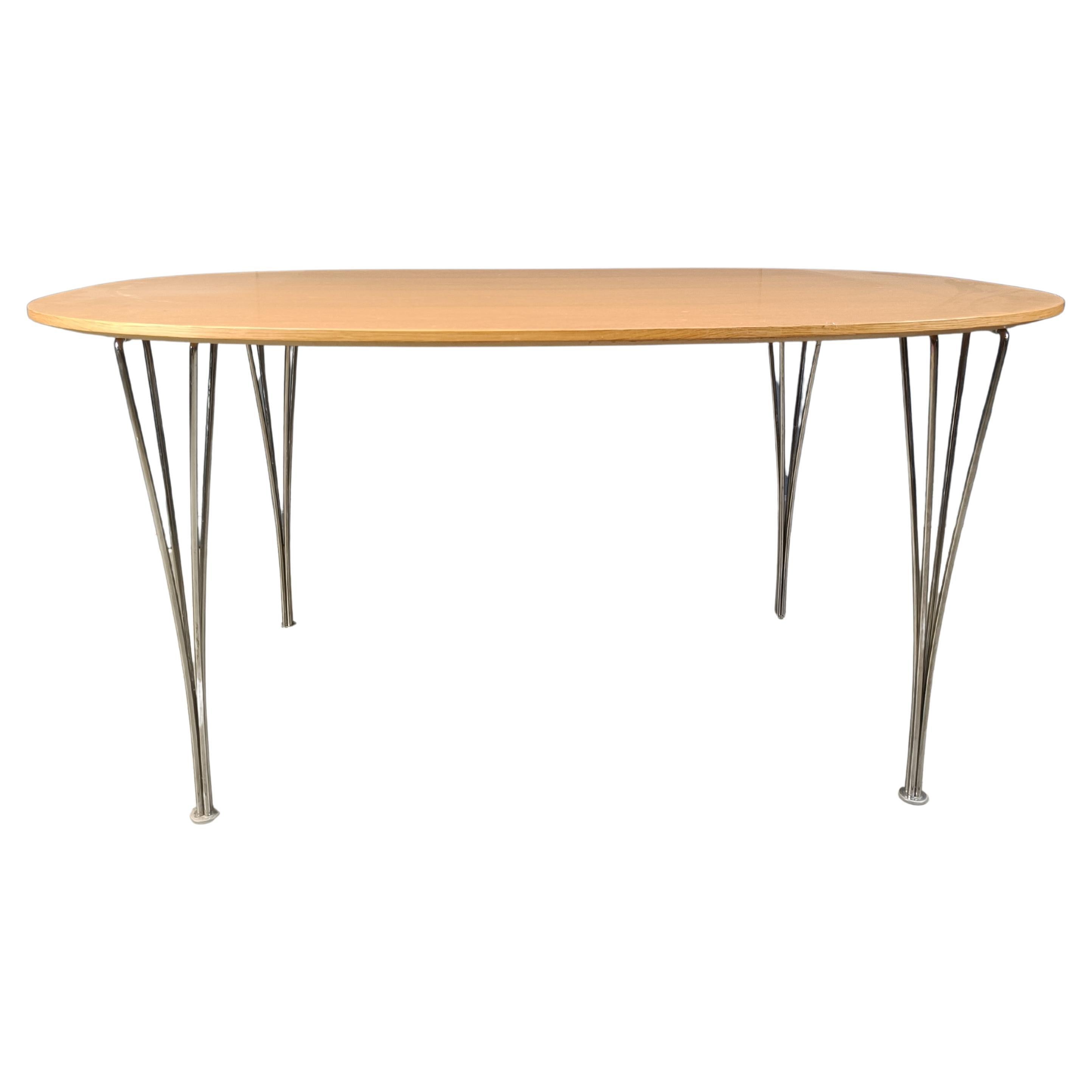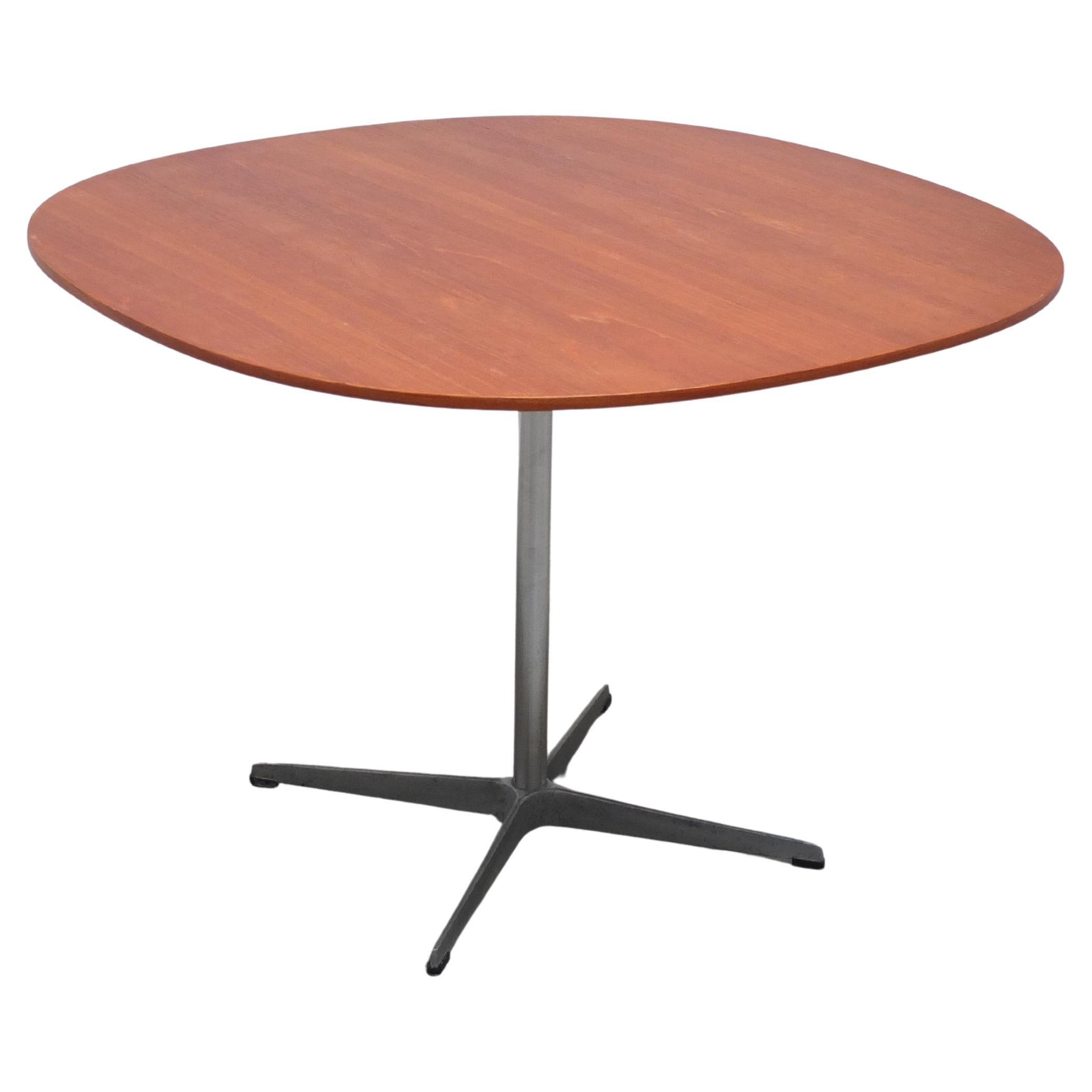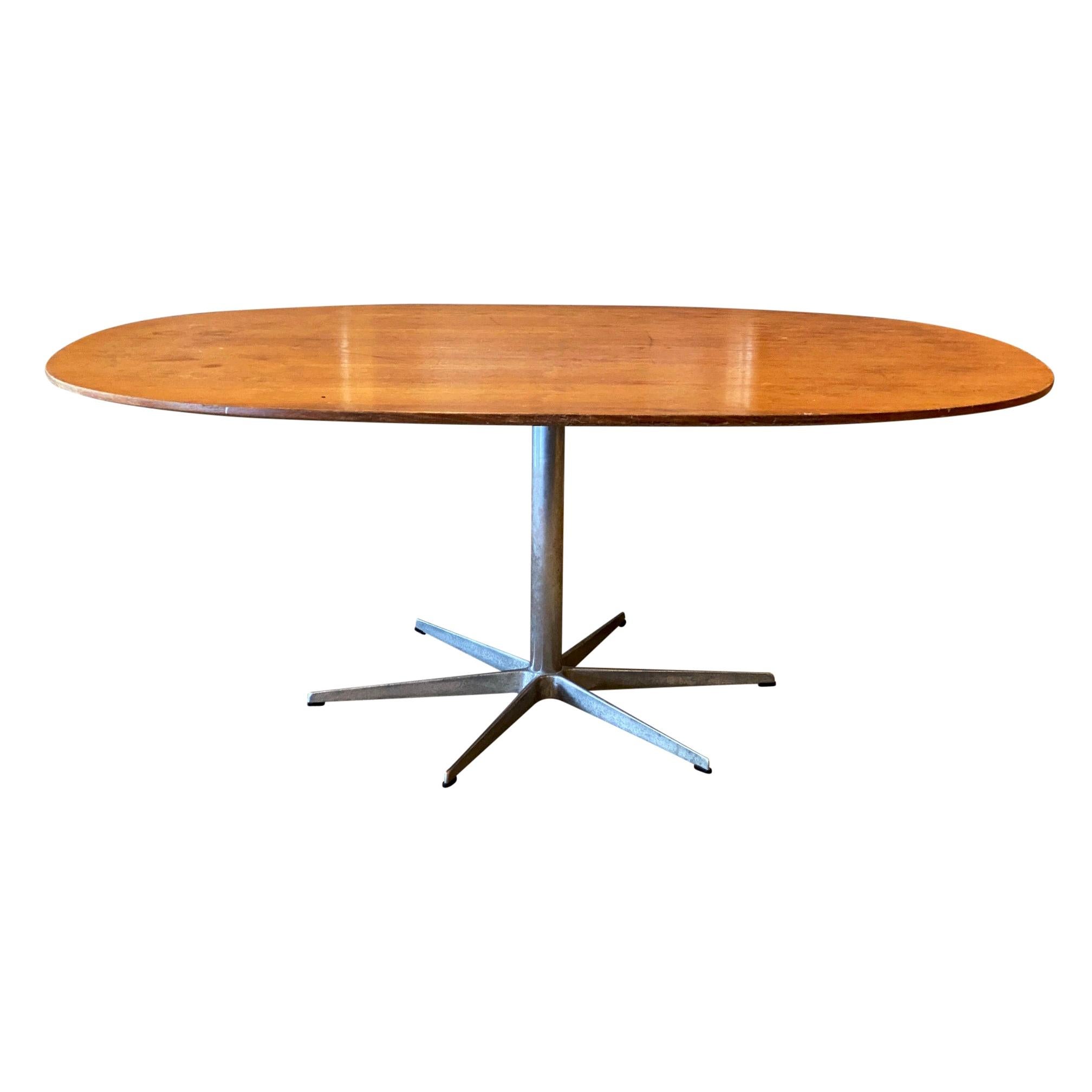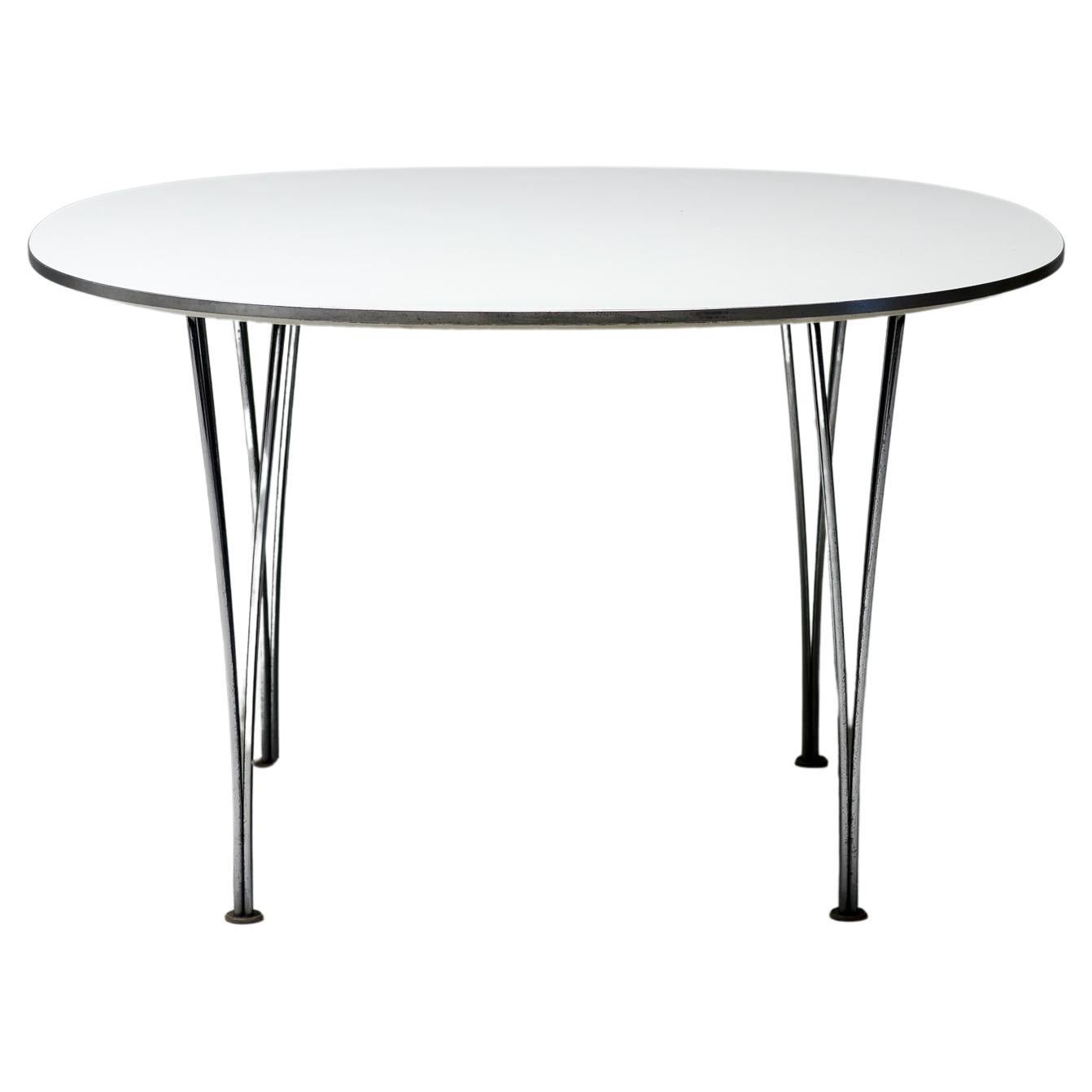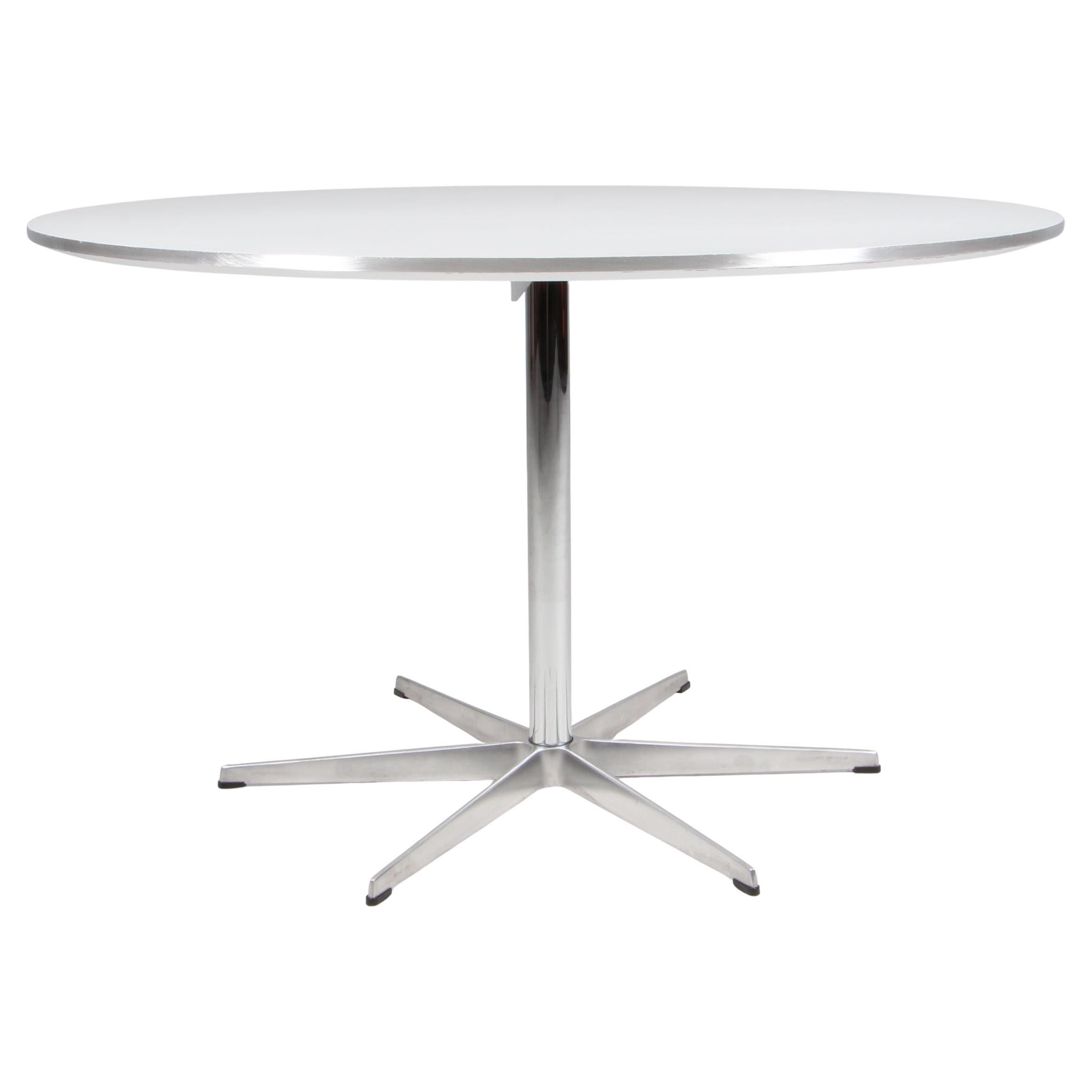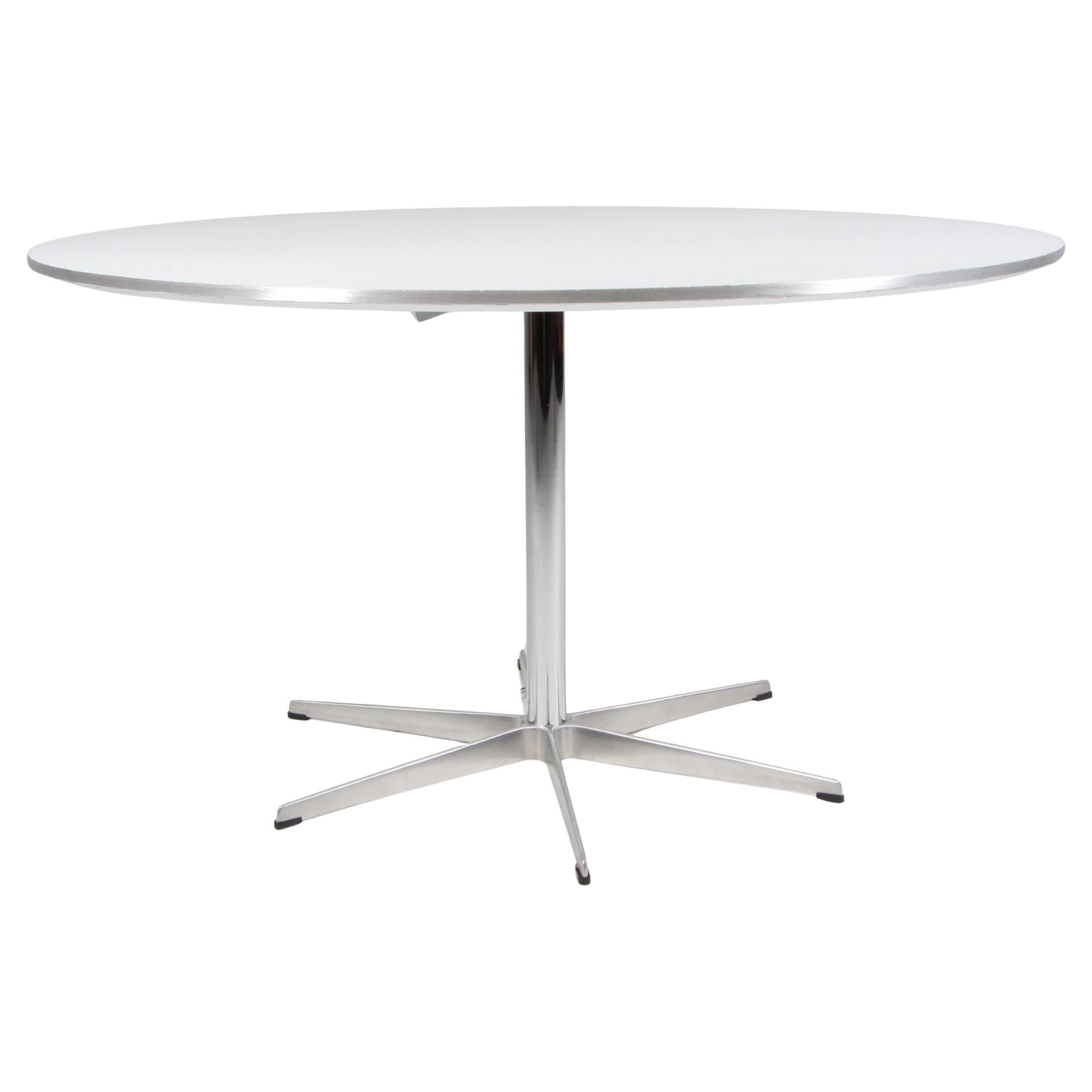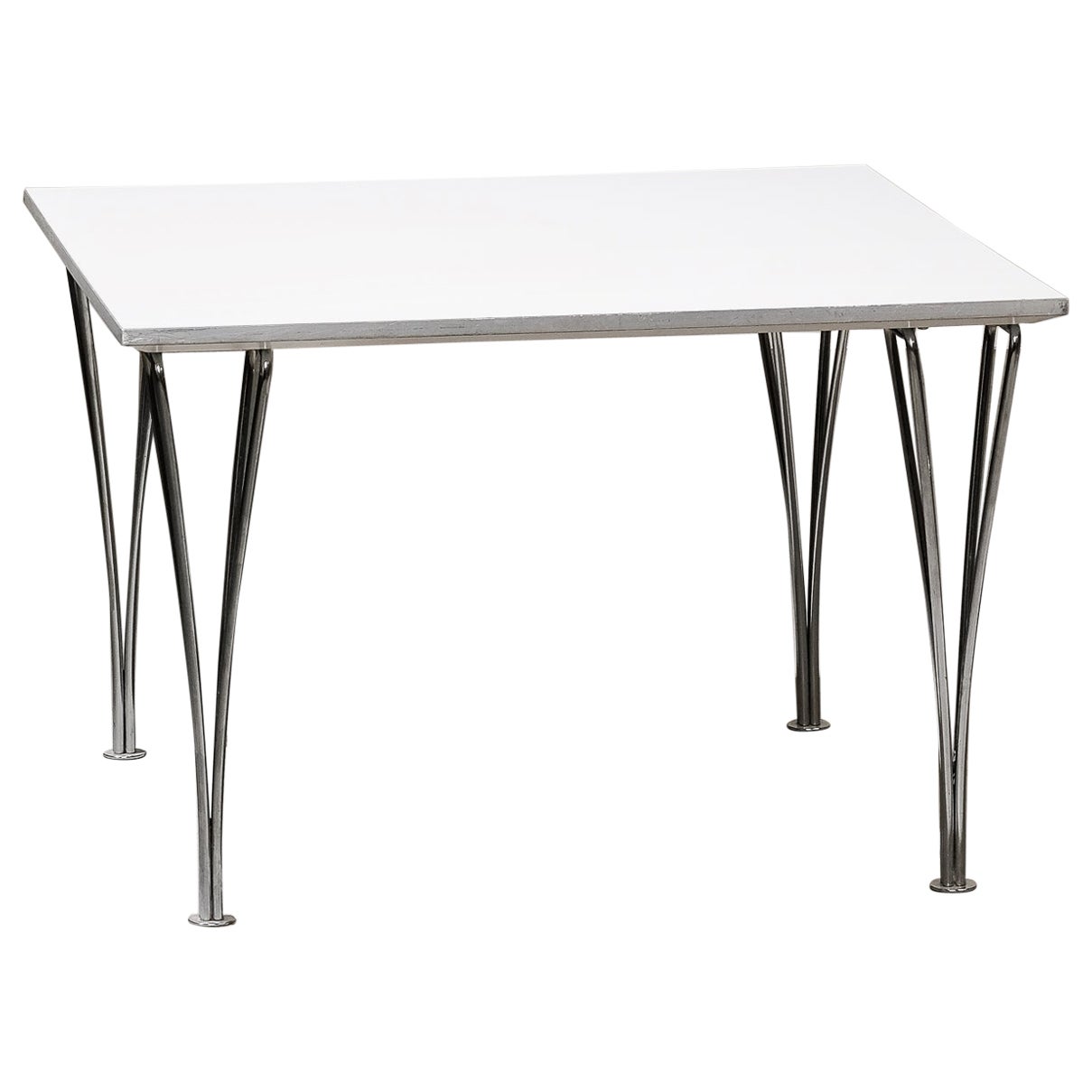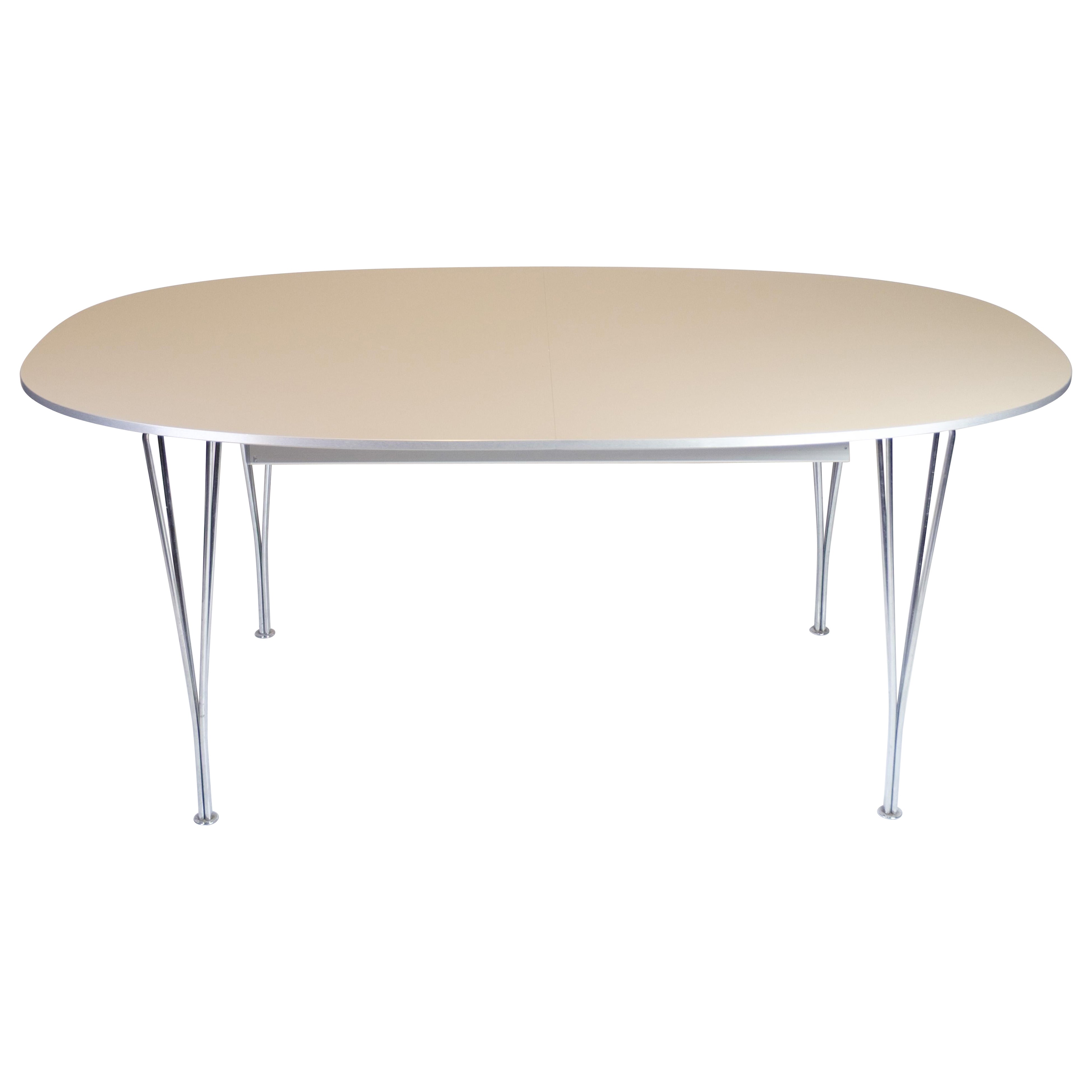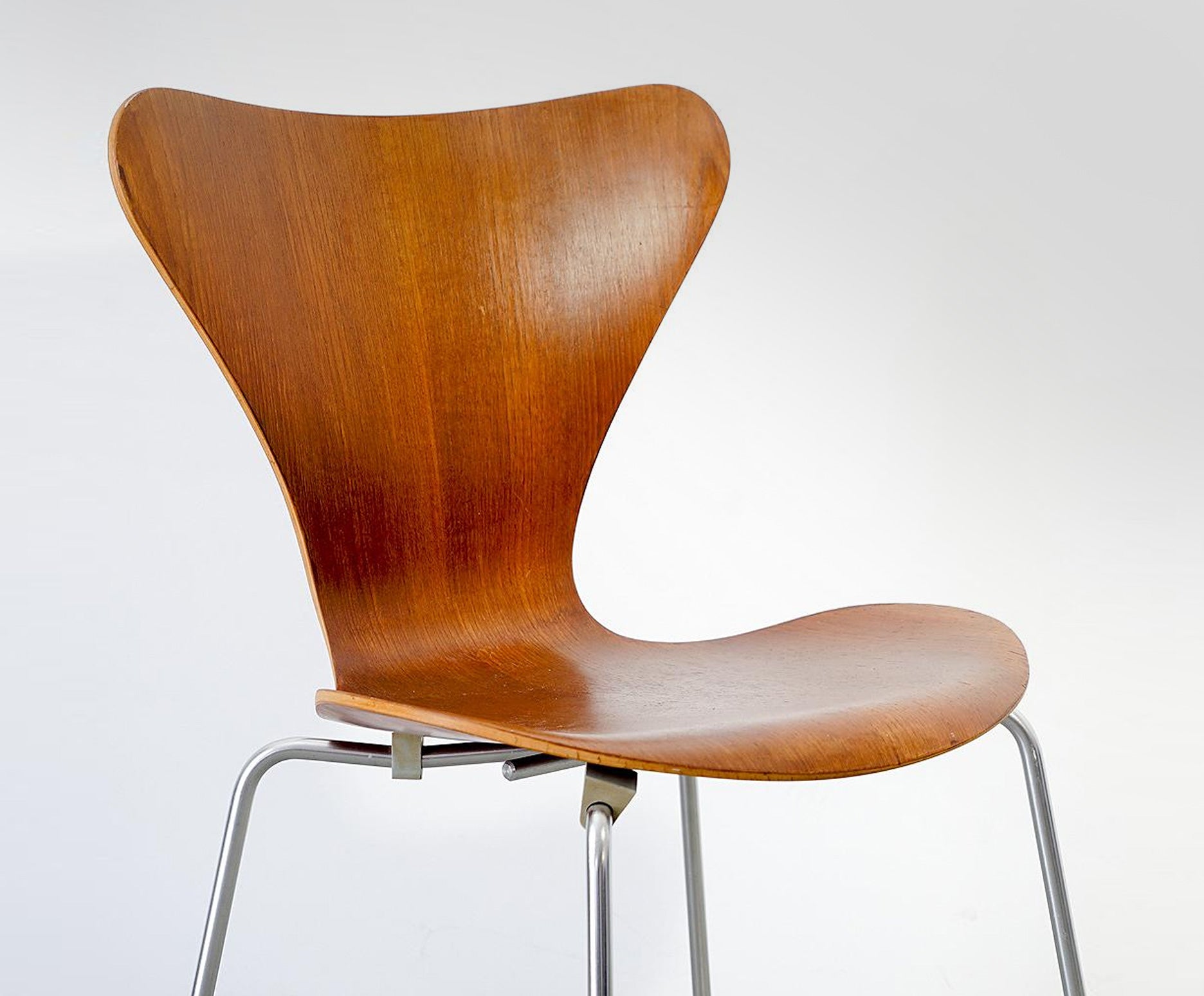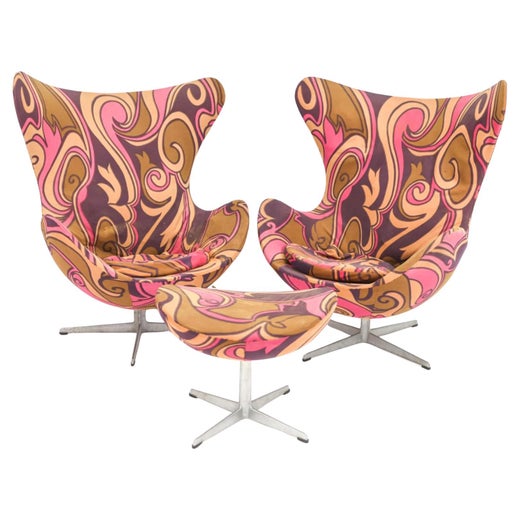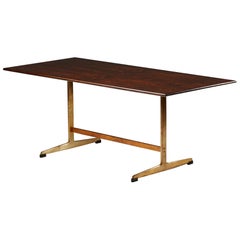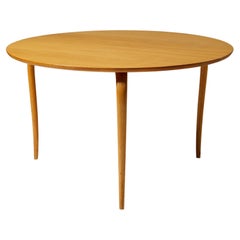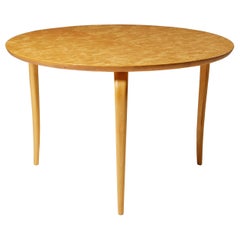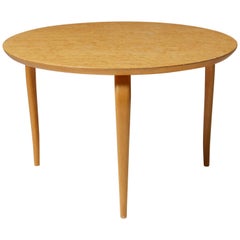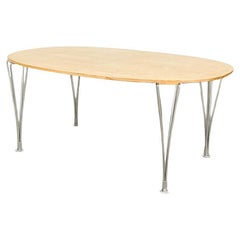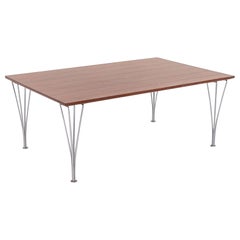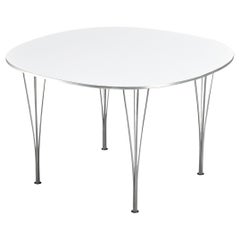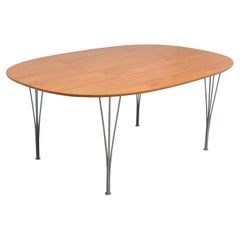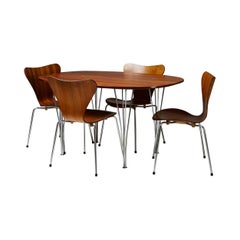
Dining set by Bruno Mathsson, Piet Hein and Arne Jacobsen for Fritz Hansen
View Similar Items
Dining set by Bruno Mathsson, Piet Hein and Arne Jacobsen for Fritz Hansen
About the Item
- Creator:
- Design:
- Dimensions:Height: 70 in (177.8 cm)Width: 135 in (342.9 cm)Depth: 90 in (228.6 cm)
- Sold As:Set of 5
- Style:Scandinavian Modern (Of the Period)
- Materials and Techniques:
- Place of Origin:
- Period:
- Date of Manufacture:1950s
- Condition:Wear consistent with age and use.
- Seller Location:Stockholm, SE
- Reference Number:1stDibs: LU1006618608862
Series 7 Chair
The celebrated Model 3107, or Series 7, chair showcases Arne Jacobsen’s (1902–71) trademark understatement and interplay between form and functionality. Part of a seductive foray into minimalism for the modernist Danish architect and designer, the Series 7’s seat and backrest were produced from a single piece of bent plywood in 1955 for manufacturer Fritz Hansen.
The lean, stackable chair updates Jacobsen’s simple and spare 1952 Ant chair to a broader base while retaining its revolutionary construction (also a one-piece seat and back) and adding an extra leg. It was a thoroughly modern design inspired in equal parts by the Danish cabinetmaking tradition that preceded Jacobsen as well as the gentle and organic forms that typified Scandinavian modernist furniture. The chair was also a technical advancement of Charles and Ray Eames’ innovative plywood molding techniques.
Trained as a mason and then an architect, Jacobsen assisted in Copenhagen's City Architect's Office after graduating from the Royal Danish Academy of Fine Arts in 1927, where he eventually became a professor. He set up his own design practice in 1930 and produced large-scale projects such as the Bellavista housing estate, a revered work of Bauhaus-style architecture situated north of Copenhagen in Klampenborg.
In 1960, Jacobsen completed his architectural work on the 22-story SAS Royal Hotel and Air Terminal in Denmark’s capital city, but, as he preferred to be involved thoroughly in such commissions, he designed the interiors as well as every other possible detail for the accommodation property, from lighting to textiles to furniture. A diverse designer with a world-famous work ethic, Jacobsen also created modern light fixtures, bathroom fittings, cutlery and metalware — a 1957 set of flatware he designed for A. Michelsen was featured in Stanley Kubrick’s 2001: A Space Odyssey.
Jacobsen was one of the most successful and accomplished Danish designers of the 20th century. Along with the Ant and massively successful Series 7, his Swan and Egg chairs, produced in 1958 for the SAS hotel, are definitive exports and exemplify Danish modern’s marriage of quality materials, simplicity and thoughtful form.
The Series 7 has remained in production since 1955 at Fritz Hansen, where carpenters carefully select and cut sheets of veneer by hand in order to maintain the chair’s classic shape. It remains among Jacobsen’s most simple and pared-down chairs, and while each model is made of pressure-molded sliced veneer, the Series 7 is available in varying veneers and finishes. It is the most sold chair in the manufacturer’s history.
Arne Jacobsen
The eye-catching work of the Danish architect and designer Arne Jacobsen often introduces new collectors to mid-20th century furniture. With their fluid lines and sculptural presence, Jacobsen’s signature pieces — the elegant Swan chair and the cozy-yet-cutting edge Egg chair, both first presented in 1958 — are iconic representations of both the striking aesthetic of the designers of the era and their concomitant attention to practicality and comfort. Jacobsen designed furniture that had both gravitas and groove.
Though Jacobsen is a paragon of Danish modernism, his approach to design was the least “Danish” of those who are counted as his peers. The designs of Hans Wegner, Finn Juhl, Børge Mogensen and others grew out of their studies as cabinetmakers. They prized skilled craftsmanship and their primary material was carved, turned and joined wood. Jacobsen was first and foremost an architect, and while he shared his colleagues’ devotion to quality of construction, he was far more open to other materials such as metal and fiberglass.
Many of Jacobsen’s best-known pieces had their origin in architectural commissions. His molded-plywood, three-legged Ant chair (1952) was first designed for the cafeteria of a pharmaceutical company headquarters. The tall-backed Oxford chair was made for the use of dons at St. Catherine’s College, Oxford, whose Jacobsen-designed campus opened in 1962 (while still under construction). The Swan, Egg and Drop chairs and the AJ desk lamp were all created as part of Jacobsen’s plan for the SAS Royal Copenhagen Hotel, which opened in 1960. (The hotel has since been redecorated, but one guest room has been preserved with all-Jacobsen accoutrements.)
To Jacobsen’s mind, the chief merit of any design was practicality. He designed the first stainless-steel cutlery set made by the Danish silver company Georg Jensen; Jacobsen’s best-selling chair — the plywood Series 7 — was created to provide lightweight, stackable seating for modern eat-in kitchens. But as you will see from the objects on 1stDibs, style never took a backseat to function in Arne Jacobsen’s work. His work merits a place in any modern design collection.
Find authentic Arne Jacobsen chairs, tables, sofas and other furniture on 1stDibs.
More From This Seller
View AllVintage 1950s Danish Scandinavian Modern Coffee and Cocktail Tables
Bronze
Vintage 1930s Swedish Scandinavian Modern Side Tables
Birch, Elm
Vintage 1970s Swedish Scandinavian Modern Tables
Birch
Vintage 1970s Modern Tables
Birch
Mid-20th Century Mid-Century Modern Sofa Tables
Birch, Pine
Vintage 1970s Swedish Coffee and Cocktail Tables
Birch
You May Also Like
1990s Danish Scandinavian Modern Dining Room Tables
Metal, Chrome
Vintage 1960s Danish Modern Coffee and Cocktail Tables
Steel
Vintage 1960s Danish Scandinavian Modern Dining Room Tables
Aluminum, Steel, Chrome
Mid-20th Century Danish Scandinavian Modern Dining Room Tables
Metal
Early 2000s Danish Scandinavian Modern Dining Room Tables
Beech
Mid-20th Century Danish Scandinavian Modern Dining Room Tables
Metal
